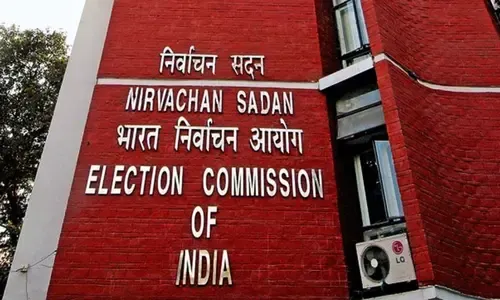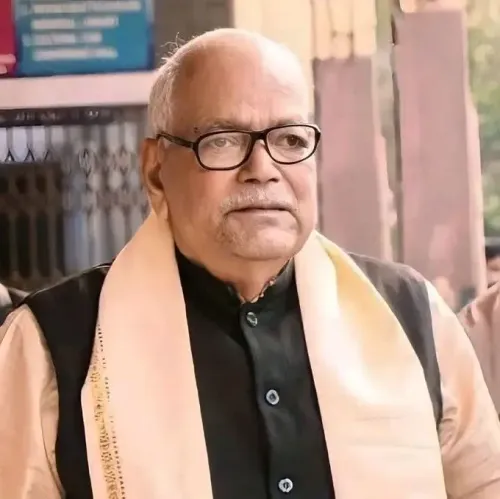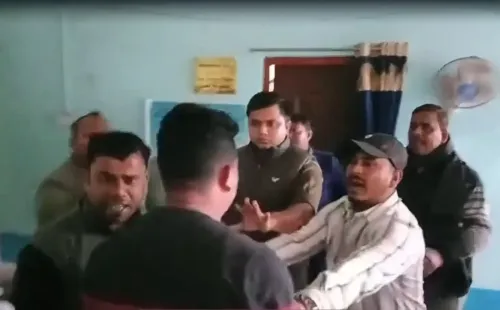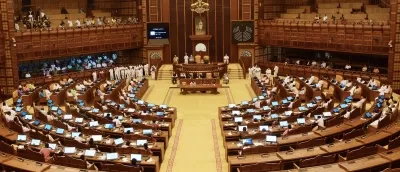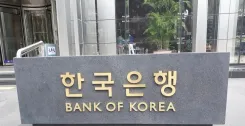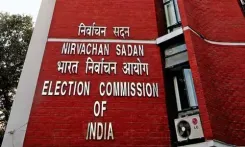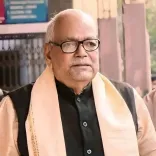Did New Delhi Display 'Remarkable Message Discipline' in India-US Relations?

Synopsis
Key Takeaways
- India's message discipline has been praised amid US tensions.
- Trump's birthday call to Modi signifies ongoing diplomatic relations.
- Experts believe India will have to make strategic concessions.
- Future negotiations may focus on energy and trade.
- Uncertainty remains in US-India relations despite recent warming.
Washington, Sep 17 (NationPress) As US President Donald Trump reached out to Prime Minister Modi to convey his wishes on the occasion of his 75th birthday, a prominent authority on India-US relations praised New Delhi for exhibiting exceptional message discipline in addressing recent strains with the United States.
In an exclusive discussion with IANS in Washington, DC, Milan Vaishnav, the Director and Senior Fellow of the South Asia Program at the Carnegie Endowment for International Peace, expressed his belief that India has “remained steadfast and the United States is returning to the negotiation table.”
“I commend the Indian side for maintaining their composure and not taking Trump's bait. They’ve shown remarkable message discipline. I still believe India will have to concede more than it gains while this President is in office. However, this serves a longer-term strategy where fostering amicable US-India relations is crucial,” he remarked.
During their first phone exchange in several months, Trump called Modi on Tuesday to celebrate his 75th birthday.
In a post on X, Modi referred to Trump as his “friend” and expressed gratitude for the birthday wishes.
“Thank you, my friend, President Trump, for your phone call and warm greetings on my 75th birthday. Like you, I am also fully committed to elevating the India-US Comprehensive and Global Partnership to new heights. We support your efforts towards a peaceful resolution of the Ukraine conflict,” PM Modi stated.
Trump also shared on Truth Social, describing the phone conversation as “wonderful” and appreciated Modi's backing in efforts to conclude the conflict in Ukraine.
“Just had a wonderful phone call with my friend, Prime Minister Narendra Modi. I wished him a very Happy Birthday! He is doing a tremendous job. Narendra: Thank you for your support in ending the War between Russia and Ukraine! President DJT,” he mentioned.
This phone call coincides with US Assistant Trade Representative for South and Central Asia Brendan Lynch engaging in discussions with India’s chief trade negotiator Rajesh Agrawal in Delhi.
Both parties characterized the discussions as “positive.”
Vaishnav, also an Adjunct Professor at Georgetown University, described these talks as a “foundation” for the upcoming sixth round of negotiations.
“Based on initial statements from both sides, I believe these discussions were fruitful in re-establishing negotiations,” he noted.
Vaishnav indicated that a shift in rhetoric from the Trump administration recently “hopefully provided negotiators with an opportunity.”
“A toxic atmosphere had developed due to statements from the White House and senior officials like Howard Lutnick and Peter Navarro. However, the recent rhetoric from Trump has been more conciliatory, which hopefully allowed negotiators to gain some footing,” he pointed out.
Assessing India’s approach in the ongoing negotiations, Vaishnav expressed skepticism that New Delhi would make any “significant concessions” in sensitive sectors such as agriculture or dairy.
“These are politically charged topics, and India has maintained its stance on them in previous trade discussions as well. However, I suspect the Modi government is exploring minor concessions that would demonstrate goodwill to the American side without provoking backlash domestically,” he argued.
Vaishnav proposed India’s acquisition of US energy as a potential incentive.
“India is quite receptive to discussions on energy, including crude oil, LNG, and civilian nuclear power. All three topics are on the table, and sources suggest India is prepared to increase its purchases of US energy exports and consider adjustments to its civil nuclear liability laws. In fact, India has been gradually boosting its US oil purchases in recent months, albeit without much fanfare or recognition from the American side,” he emphasized.
Regarding the additional US tariffs of 25% on India for purchasing Russian oil, Vaishnav stated that India does not have an “ideological commitment” to Russian crude imports.
“If the United States is willing to facilitate new suppliers for India, I expect India will embrace that deal and reduce Russian oil imports. However, doing so publicly will be challenging as India does not want to appear to be yielding to a pressure-driven Trump administration. Such matters should have been addressed discreetly from the outset,” he commented.
Some analysts contend that a sudden shift in the US approach towards India is a direct consequence of PM Modi’s recent trip to China for the Shanghai Cooperation Organisation (SCO) summit, which featured the now-iconic photo-op with Chinese President Xi Jinping and Russian President Vladimir Putin.
Last week, in an exclusive conversation with IANS, Congresswoman Deborah Ross described Modi’s meetings in China as a “smart move” to signal to the United States that “he has alternatives.”
“I believe it was indeed a clever move for him to do that, as he demonstrated that he has options,” she remarked.
Vaishnav concurred with her viewpoint.
“There exists a push-and-pull within the administration regarding how best to address China. Some voices value India’s partnership in countering China and genuinely believe India is central to America’s Indo-Pacific strategy. I think the Trump administration may have realized it has overstretched its advantage. The signaling at the SCO, where Modi, Putin, and Xi shared the spotlight, clearly resonated in Washington.”
Nonetheless, Vaishnav warned that even amid the current warming of bilateral relations, the future remains uncertain.
“The challenge is that no one can predict what tomorrow holds, not even senior administration officials. They must perform a kind of daily balancing act to explain and justify what emerges from the White House. Certainty is elusive,” he concluded.


